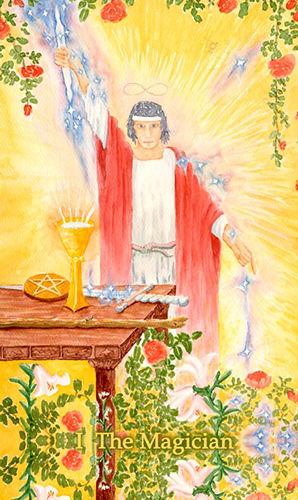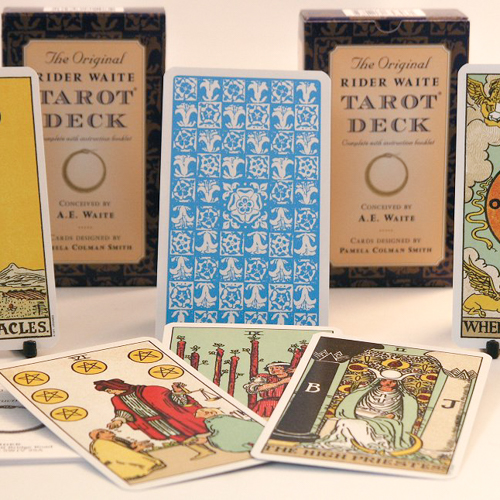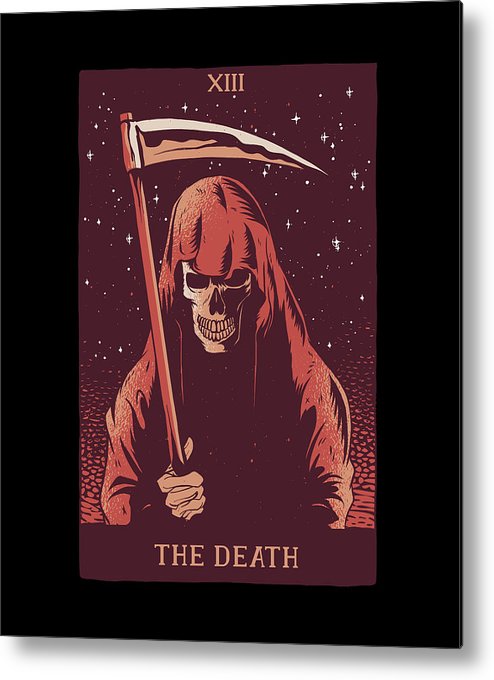
Rider Tarot is one of the most well-known tarot decks. Pamela Colman Smith illustrated it. It was published first in 1910. It is well-known for its simplicity, color scheme, symbolism, and imagery. It is an ideal choice for beginners since it includes a sheet that explains the meaning of each card.
Major Arcana
The Major Arcana card deck is 22 cards that depict the human experience. These cards have three main themes. They reflect aspects such as love, work, or spirituality. This card set features the Fool as a central figure. It represents the beginning stages in spiritual development. He represents the person's natural tendency to "look before you leap" or to pay attention to details.
Each Major Arcana cards are numbered from 0 to 21 (The Fool), and the Major Arcana in numerical sequence form a journey. This is similar the Joseph Campbell "Hero's Journey” metaphor. This metaphor can help you remember the Major Arcana. You can memorize their order by breaking them up into seven groups.
Pentacles
Rider Tarot readings could indicate a generosity spirit through the King of Pentacles. These people donate to charity and work for the good of others. They have excellent business skills and are career-oriented. They can also be greedy and possessive. They enjoy the physical world but are often reckless with their finances.

Pentacles can also indicate a new beginning, or a beginning. This card could indicate that you have acquired a valuable piece or knowledge that will prove to be beneficial in the future. This card can also signify a repeat of a life lesson with long-lasting implications. This card encourages the person to look back at their past experiences and also focus on the lessons they are learning right now.
Swords
There are many meanings for swords in Rider Tarot deck. They can be interpreted according to the card. The Upright Four of Swords often represents an experience in the present or recent past. This card can also indicate that you've been overworked or overly motivated in some way. This card may call for a retreat to your inner sanctuary to recuperate. To reach your goals, you need to take a break.
While swords are usually associated with conflict, there is a time when they can be a source to happiness. For example, the Six of Swords can be a positive sign. This card may be a sign of your life's progress or a sign you are on the verge of personal improvement.
Linestrider tarot deck
The Rider deck of tarot cards is one among the most popular and oldest in the United States. It was first published in 1910 by Rider & Company. The Rider deck was designed by Arthur Edward Waite who was a member of the Order of the Golden Dawn. Its symbols were intended to communicate esoteric principles. The Rider tarot deck uses both images and text to convey the meaning of the cards.
A. E. Waite created a guide that explained the meanings, history and origins of each card in the Rider editions before it was released in 1909. The Rider deck symbol symbols were also detailed in the guide. The first version of Waite's guide was published in 1909, and included black-and-white illustrations by Smith.

Morgan Greer tarot deck
The Morgan Greer Tarot Deck offers a new take on traditional tarot cards. The Morgan Greer Tarot deck was created by Bill Greer. Lloyd Morgan directed its design. It has 96 cards and unique interpretations. The card layout is similar to the Rider-Waite, but has a different look and feel. The card's images have larger and more detailed images, which allow the reader to better grasp each card’s meaning.
Morgan Greer Tarot deck and Rider Waite Tarot deck have similar meanings. However, Morgan Greer's deck is more detailed and contains more symbolism. For beginners, the Rider Waite Tarot deck should be preferred.
FAQ
What hobbies are best for introverts and what types of hobbies would they enjoy?
Introverts have the ability to focus on one thing at a time. They tend to prefer solitary activities such as reading, writing, playing music, watching movies, etc.
They enjoy being alone and spending time alone. They do not like to socialize all day. They often feel bored when they are surrounded by people.
Introverts will often choose hobbies that require them alone. An introvert might like to read, listen to music, take photographs, paint, write poetry, or even create art.
Some introverts will even live alone. This allows them to focus on their hobby without being distracted by other things.
What are your top hobbies?
You can find the best hobbies that you love doing for yourself. You will find it easier to stay motivated if you love what your doing. You'll also have an excuse when you're not feeling well or tired!
We all have hobbies that we love and know. These include painting, crafting, photography, cooking and sports.
Another option is to volunteer at a local charity shop.
Suppose you're looking for something more adventurous. Try scuba diving, rock climbing or parasailing.
You can spend your time outdoors in many different ways, including spelunking, snowshoe hiking, snowshoe hiking and more. These include caving and cave tubing.
What are observation hobbies exactly?
Observation hobbies are activities where you observe people doing what they do. This could be watching sports, reading books or going on holiday. You could also observe other people.
Because they teach you how to think creatively, observation hobbies are great. This knowledge can be used later to help you with projects that you are working on for others or yourself.
You'll discover that it's easier to learn if there's a passion for something.
If you're interested in football, for instance, you could watch it or read a book. Exhibitions are a great way to learn about photography.
If you enjoy playing music, you could play along to songs online or buy a guitar.
You can cook your own meals, or you could go to a restaurant.
If you love gardening, you might grow vegetables or flowers.
If you are a fan of dancing, you can join a class or go out with your friends to learn.
You can paint pictures if your passion is painting.
If you like writing, you could write stories or poems.
Drawing pictures is a great hobby.
You could work as a caretaker or keeper at a zoo if you are passionate about animals.
If you enjoy science, you might consider studying biology, chemistry and physics.
You can read books, listen to podcasts, or watch films if history interests you.
If you like traveling, you could travel abroad or explore your local area.
What are your educational hobbies and interests?
An educational hobby can be defined as an activity in which you learn something through doing it. This could be anything you want, such as playing sports or learning how to play an instruments.
It should be enjoyable and have fun. While you don't need to do it every day, if bored you might consider other activities.
You also want to ensure you're not spending too much on these activities because they can end up costing you more than they're worth.
How do I find a hobby that interests me?
At first, it may seem like there is nothing you can do.
You're probably thinking, "I'm not very artistic," or "I'm terrible at sports," or maybe even "I don't know anything."
However, it is likely that you already have a lot to draw on when searching for a hobby.
It's just not something you're aware of.
Take a good look at what you have in your house. How much stuff do you own?
Do you have any old toys lying around?
Perhaps you own a collection or magazines.
Maybe you've always wanted to learn how to cook.
Maybe you want to get back into playing the guitar.
Whatever it may be, you can likely turn it into something.
The key is to realize that you already have plenty of experiences to draw upon.
You'll find a hobby that fits your lifestyle once you do.
What are your competitive hobbies?
Competitive sports include running, swimming, cycling, golfing, tennis, etc.
These games are often played by people who enjoy exercise but also offer the opportunity to interact with others.
If your hobby involves physical activity, you will likely find other people who share it.
This could be as simple as joining a sports club where you play regularly together.
You might also choose to participate in team games involving playing alongside others.
These include netball (soccer), football (cricket), netball (basketball), hockey, baseball, volleyball and badminton.
There are many different types of competition.
Some competitions are organized for purely recreational purposes.
Others are designed for competitors to prove their skill.
Other rewards are available to recognize exceptional performance.
The winners are awarded prizes in these cases.
Other competitions are intended to test strength and stamina.
These are endurance events.
For example, marathon races, triathlons, Ironman Triathlon, etc.
Athletes train hard before they compete in these events.
They will follow a strict training program to prepare themselves mentally and physically.
They might also have to travel for preparation.
It is important to remember, not all athletes will compete in every type and event.
What does a hobby really cost?
A hobby costs nothing but time. If you're serious about it, however, it may take you many years to reach your goals.
There is one thing that will help you. It's called passion. If you feel passionate about your chosen field, you'll find it easier to put in the work required to achieve your goals.
And once you start putting in those hours, you may find that you become addicted to the activity. Here is the fun part! Because you're doing something you like and it keeps getting better. This will mean that you will have likely made significant improvements by the end.
It doesn't matter how long it takes. Don't be afraid to try. You may be surprised.
Statistics
- A new survey by Pew Research Center of teens ages 13 to 17 finds that 36% of girls feel tense or nervous about their day every day; 23% of boys say the same. (pewresearch.org)
- Much of this decline reflects the fact that teens are less likely to work today than in the past; among employed teens, the amount of time spent working is not much different now than it was around 2005. (pewresearch.org)
- The intensity of the dialogue partners' bond at the end of the forty-five-minute vulnerability interaction was rated as closer than the closest relationship in the lives of 30 percent of similar students. (time.com)
- 37% Video Games 36% Travel 36% Health and Fitness (quizexpo.com)
- I am 100% biologically a woman (discover.hubpages.com)
External Links
How To
How to learn a music instrument
There are many options for learning how to play the piano. You have the option of going to school, buying a book or taking lessons from someone who plays an instrument. Or, you can watch videos online. These are just a few tips and tricks to help you get started if you're determined to make your own path.
-
Find something that interests and you. If you don’t like any of these instruments, you can always try another. If you don't like playing an instrument, it would be difficult to learn how to play it.
-
Be patient. Learning anything new takes some time. Do not expect to be able to master every aspect of the subject immediately. Instead, practice every day.
-
Regular practice is important. Do this even when you feel tired. This will ensure you don't forget what lessons you have just learned.
-
Make sure you choose a safe place to practice. It is best to find a quiet space where you will not disturb others. Be sure to not distract others. Also, don't let loud music play near your home.
-
Have fun. Music is meant to be enjoyed. You should have fun practicing music. It will make you more motivated to keep going.
-
Set goals. If you set goals, then you will know exactly how you want to get there. Therefore, you will have no excuse for failing.
-
Keep track of your progress. Keep track of all your successes and failures. This will help you to improve your performance over time.
-
Take breaks. Sometimes, all you need is to take a moment to think. Taking breaks will give you time to think about things.
-
Ask questions. Ask others if there are any doubts or questions regarding the instrument. They may be willing to help.
-
Listening can teach you a lot. Many musicians enjoy listening to their favorite songs and trying to imitate them. This allows them to grasp the basic concepts of the song.
-
Read books. Watching videos or taking classes will not teach you as much as reading books. Books contain information you will not find anywhere else.
-
Join a group. Playing with others will force you to practice more. Plus, you will find people with similar interests to you.
-
You can watch tutorials. Tutorials are short videos that explain various topics in great detail. These videos usually focus on one specific aspect of the instrument. Watching tutorials can help you understand difficult parts of the instrument.
-
You can try different methods. Some prefer to learn by listening, while others prefer reading. You can experiment until you discover what works for you.
-
Practice makes perfect. The truth is that nobody becomes an expert overnight. Instead, it takes time and effort to become proficient enough for you to succeed.
-
You can learn from other musicians. Listening and learning from others can help you to learn faster.